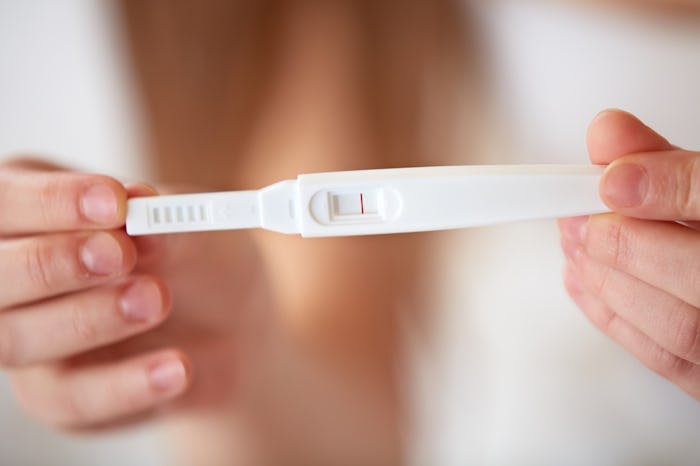Life

How Accurate Are Pregnancy Tests After A Missed Period?
There are a lot of reasons you might miss one or multiple periods. You're stressed, you're on birth control, you're a marathoner, you've never been regular — regardless of reasons, you may suspect you're pregnant, but are pregnancy tests accurate after your missed period?
Pregnancy tests work by testing your urine for the hormone human chorionic gonadotropin (hCG) by using something called "monoclonal antibody technology," according to the experts at The Malpani Infertility Clinic. This hormone is the one that is responsible for building the placental home of your little uterine-dwelling freeloader while you grow it into an autonomous human being. The only time in your life that you produce this hormone is when you're pregnant. I mean, it's not like you need to grow a placenta if you're not making a human person or people, you know? Sure, your body shoots off other hormones like progesterone and estradiol, but none of those are unique to pregnancy, so they're not a great indicator as to whether or not you're pregnant, or say, on birth control or a steroidal medication.
Pregnancy tests are all almost entirely the same level of accuracy after you miss your period, according to Mayo Clinic. In fact, that's when pregnancy test manufacturers (and doctors) recommend you take a test — after the first day of your missed period. But since pregnancy tests are just looking for the hormone that grows the placenta, you may still be curious. Are they accurate after multiple missed periods? Who knows how long that hormone hangs out?
As it turns out, as soon as your body starts producing hCG, it doesn't stop until you're no longer pregnant. It's at its highest levels in the first two trimesters, and it dips and levels off in the third, according to the American Pregnancy Association. Once hCG becomes detectable by test (around the day of your first missed period, according to The Department of Health and Human Services), hCG will always be detectable, provided you're still pregnant; it doesn't matter whether you're six weeks along or 16. It can't tell you if the pregnancy is healthy or viable, but it can tell you if it exists, so, as soon as you get the results, it's time to call your doctor.
If you have concerns regarding your missed period, you should definitely call your provider directly and discuss it with them. A pregnancy test, after all, can only tell you one thing.